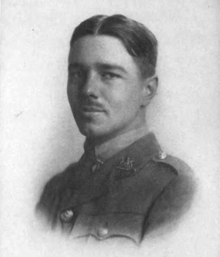Y aunque las últimas luces en el negro oeste se apaguen
—Gerald Manley
Hopkins
Entre los altos árboles de tu padre
una astilla de lejana luz poniente al anochecer,
el único estímulo en días de cielo gris,
lo único constante en un verano de lluvia y aburrimiento.
Los mosquitos se juntan entre árbol y árbol
formando esferas frenéticas.
En una esquina del jardín
la glorieta desmoronada. Tapada por su propio techo
estuvo tirada allí todo el verano,
mientras él vive entre los muebles
de la familia mermada, extrañando los cielorrasos altos
pero no el frío, y sí, el sueño que traen los postigos.
Joseph Woods, Drogheda, Irlanda, 1966
Versión © Gerardo Gambolini
Versión © Gerardo Gambolini
imagen: Nuvens,
John Constable (1776-1837)
A Wet Summer’s
Evening
And though the last
lights off the black West went
—Gerald Manley Hopkins
Through
your father’s high trees
a sliver
of weak western light far off at
evening,
the only
lift in days of half-light,
only
constant in a summer of rain and boredom,
Midges gather
in space between trees
forming a
frenetic sphere.
In a far
corner of the garden
the gazebo
has collapsed. Capped by its own roof
it has lain
there al the summer,
while he
lives among the thinned-down family
forniture,
missing the high ceilings
but not the
cold, and yes, the sleep that shutters bring.
Los pasajes reservados y pagados,
al llegar descubrimos que el barco se limita
a extranjeros, y pronto, nos tranquilizan,
estaremos navegando confortablemente.
Más tarde, donde el gran río se angosta,
nos silban desde los árboles y el denso follaje.
Mujeres con leña cargada en la cabeza
se detienen a mirarnos, y niños desnudos junto a ellas
nos observan lánguidamente, confundidos como nosotros
por la diferencia. Debajo de la cubierta, el restaurante
cobra su comida en moneda fuerte,
y entre plato y plato, cámaras sofisticadas
son apuntadas a la orilla como pistolas.
Joseph Woods, Drogheda, Irlanda, 1966
Versión © Gerardo Gambolini
Versión © Gerardo Gambolini
Hard Currency
Our tickets
already booked and paid for
we arrive
to find the ship is confined
to
foreigners, and soon, we’re reassured,
we’ll be
chugging comfortably along.
Later,
where the big river narrows,
we are
whistled at from trees and dense foliage.
Women with
firewood balanced on their heads
stop to
stare and naked children by their hips
look on
listlessly, bemused as we are
by
difference. Below deck, the restaurant
prices its
food in hard currency,
and between
courses elaborate cameras






_Martin+Baird.JPG)


